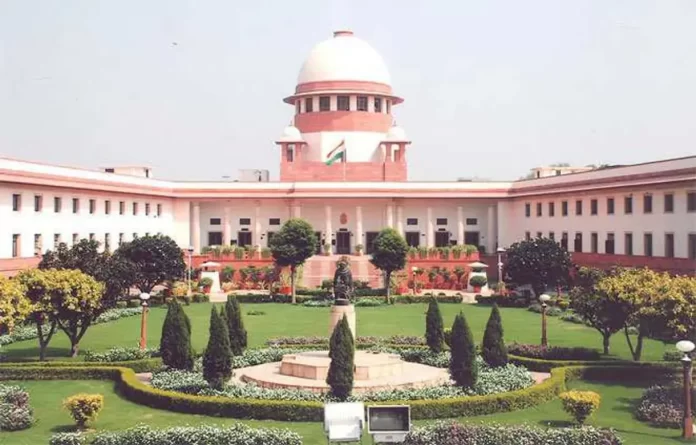The Supreme Court today refused to stay the scientific survey of the Bhojshala complex in Madhya Pradesh’s Dhar district. The complex is a medieval-era structure which both Hindus and Muslims claim as their own. However, the court said no action should be taken without its permission on the outcome of the Archaeological Survey of India (ASI) survey.
A bench of Justice Hrishikesh Roy and Justice P K Mishra issued notices to the Centre, Madhya Pradesh government, ASI and others on the plea lodged by Maulana Kamaluddin Welfare Society challenging the March 11 order of the Madhya Pradesh High Court on scientific survey. The bench sought response within four weeks.
The court remarked that in the interim, no action should be taken without the leave of this court on the outcome of the ordered impugned survey. The apex court further clarified that no physical excavation should be taken which will change the character of the premises in question.
Notably, the Hindus consider Bhojshala, an Archaeological Survey of India (ASI)-protected 11th century monument, to be a temple dedicated to Vagdevi (Goddess Saraswati), while the Muslim community call it Kamal Maula Mosque. Reportedly, under an arrangement made by the ASI on April 7, 2003, Hindus perform puja in the Bhojshala premises on Tuesdays, while Muslims offer namaz in the complex on Fridays.
The ASI on March 22 started a survey of the controversial Bhojshala/Kamal Maula Mosque complex situated in the tribal-dominated Dhar district of Madhya Pradesh. Appearing for the Hindu side, Ashish Goyal, who is also accompanying the ASI team during this process on Saturday told media that the survey is being conducted without any break using new scientific methods, like Ground Penetrating Radar (GPR), Global Positioning System (GPS), carbon dating in addition to excavation at the site. He added that videography and photography are also being carried out on the premises.


